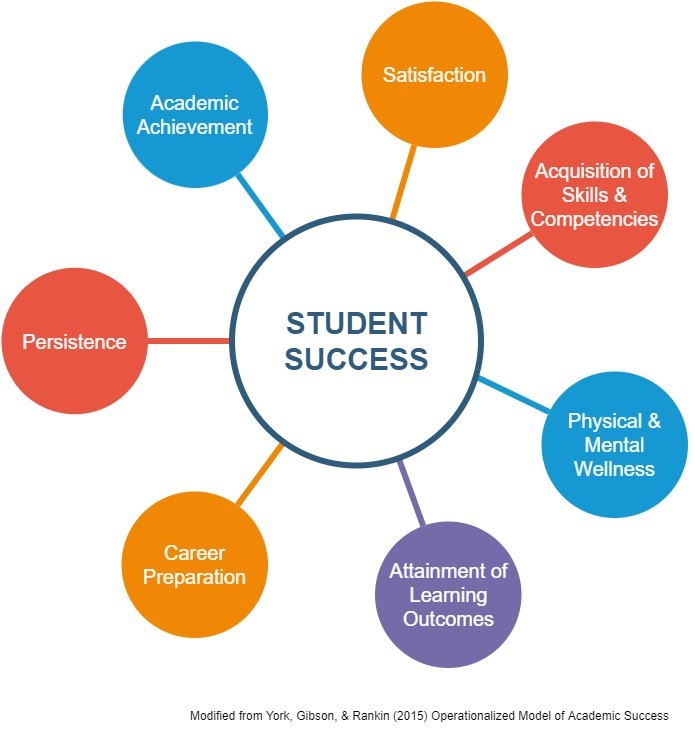Student Success: How to Achieve Your Academic Goals
Achieving success as a student isn’t just about getting good grades—it’s about managing time, setting goals, and developing the skills necessary to excel in your academic and personal life. Whether you’re in high school or university, there are proven strategies that can help you maximize your potential and succeed academically. In this guide, we’ll explore practical tips for achieving student success and staying on track throughout your academic journey.

The Importance of Student Success
Student success goes beyond the classroom. It’s about developing life skills such as time management, discipline, and problem-solving, which are essential for long-term success. By focusing on both personal growth and academic achievement, students can create a well-rounded foundation for their future careers and life endeavors.
Benefits of Focusing on Student Success:
-
Increased Confidence: Achieving academic milestones builds self-confidence.
-
Better Time Management: Mastering the ability to manage multiple tasks helps reduce stress and ensures you meet deadlines.
-
Improved Career Prospects: Success in school often translates to better job opportunities after graduation.
The more focused you are on achieving success, the more equipped you’ll be for life after school.
1. Set Clear Goals and Stay Focused
A key component of student success is having clear, achievable goals. Without direction, it’s easy to get lost in the daily grind of assignments and exams. Setting goals gives you purpose and helps you prioritize your time effectively.
How to Set Effective Academic Goals:
-
Be Specific: Instead of a vague goal like “Do well in school,” aim for something measurable like “Complete all assignments a day before their due date.”
-
Use SMART Goals: Ensure your goals are Specific, Measurable, Achievable, Relevant, and Time-bound.
-
Break Large Goals into Smaller Steps: Break down big tasks into smaller, manageable steps to avoid feeling overwhelmed.
Setting goals that are both challenging and achievable will help you stay motivated and organized throughout the semester.
2. Time Management is Key
One of the most important skills for student success is time management. It’s easy to procrastinate, but planning your time wisely can make a big difference in your academic performance. By creating a schedule, you can ensure that you devote enough time to all your subjects and activities.
Tips for Effective Time Management:
-
Create a Study Schedule: Plan your study time each week, allocating enough time for each subject or assignment.
-
Use Time Management Tools: Utilize calendars, apps, or planners to track important dates and deadlines.
-
Avoid Multitasking: Focus on one task at a time to ensure better quality and concentration.
Effective time management allows you to stay on top of your studies while also balancing extracurricular activities and social life.

3. Build Good Study Habits
Consistent study habits are fundamental to academic success. The way you approach your studies, the environment you study in, and the methods you use can all impact how well you perform.
Key Study Habits to Develop:
-
Stay Organized: Keep your notes, books, and assignments in order so you can easily access them when needed.
-
Use Active Learning Techniques: Engage with the material actively by summarizing, questioning, and teaching others.
-
Study in Intervals: Instead of cramming, study in short, focused intervals with breaks in between (like the Pomodoro Technique).
These habits help you retain information better and stay focused during study sessions.
4. Seek Help When Needed
Don’t hesitate to reach out for support when you need it. Asking for help is a sign of strength, not weakness, and there are many resources available to support your learning journey.
Where to Find Help:
-
Professors and Teaching Assistants: Ask questions in class or during office hours to gain a deeper understanding of the material.
-
Tutoring Services: Many schools offer tutoring or peer study groups for additional academic support.
-
Study Groups: Collaborate with classmates to review material and share insights.
Seeking help ensures you stay on track and get the assistance you need to understand difficult concepts.
5. Take Care of Your Health
Your physical and mental health directly affects your ability to concentrate and perform well academically. Students who neglect their health often find it harder to stay focused and succeed. Prioritize self-care to ensure that you have the energy and motivation to excel.
Tips for Maintaining Health:
-
Exercise Regularly: Physical activity boosts brain function and reduces stress.
-
Get Enough Sleep: Aim for 7-9 hours of quality sleep each night to improve focus and memory retention.
-
Eat Well: Consume a balanced diet rich in fruits, vegetables, proteins, and healthy fats to fuel your brain.
Good physical health enhances cognitive function, while mental well-being keeps you motivated and emotionally resilient.

6. Develop a Positive Mindset
Success is often as much about mindset as it is about effort. A positive mindset helps you stay motivated, overcome obstacles, and view challenges as opportunities for growth. When you have the right attitude, setbacks become stepping stones to greater success.
How to Cultivate a Positive Mindset:
-
Embrace Challenges: See difficult tasks as chances to learn and improve.
-
Practice Gratitude: Focus on the things you’re thankful for, even on tough days.
-
Visualize Success: Picture yourself achieving your academic goals to build motivation.
A positive mindset increases resilience and keeps you focused on long-term success.
7. Get Involved in Campus Life
Being active on campus can provide valuable experiences that contribute to your personal and academic growth. Engaging in extracurricular activities allows you to develop leadership skills, expand your network, and even relieve stress.
Benefits of Campus Involvement:
-
Builds Time Management Skills: Balancing academics with extracurricular activities improves your organizational skills.
-
Develops Soft Skills: Leadership, teamwork, and communication skills gained through clubs and organizations can be beneficial in your career.
-
Relieves Stress: Participating in social activities helps you unwind and take breaks from academic pressure.
Engaging in campus life enhances both your academic success and your personal development.
FAQs About Student Success
1. How can I stay motivated during tough semesters?
Stay focused on your long-term goals, break tasks into smaller steps, and remember that perseverance leads to success. Celebrating small wins can also help maintain motivation.
2. What are the best study methods for retaining information?
Active learning techniques such as summarizing material in your own words, using flashcards, and teaching others are great for retention. Also, try spaced repetition to reinforce learning over time.
3. How do I balance academic work with my personal life?
Plan ahead using a study schedule that includes time for social activities and self-care. Prioritize tasks, and be sure to take regular breaks to avoid burnout.
4. What if I struggle to understand certain subjects?
Don’t hesitate to ask for help from professors, tutors, or study groups. Sometimes a different perspective can make complex topics more understandable.
5. How can I stay focused during long study sessions?
Take regular breaks using techniques like Pomodoro, stay hydrated, and create a distraction-free study environment. Staying well-rested also plays a big role in maintaining focus.
Conclusion
Student success is not an accident—it’s the result of intentional efforts in goal setting, time management, study habits, and self-care. By following the tips outlined in this article, you can create a solid foundation for academic achievement and personal growth. Stay focused, be proactive, and remember that your efforts today will lead to a successful and fulfilling future.









